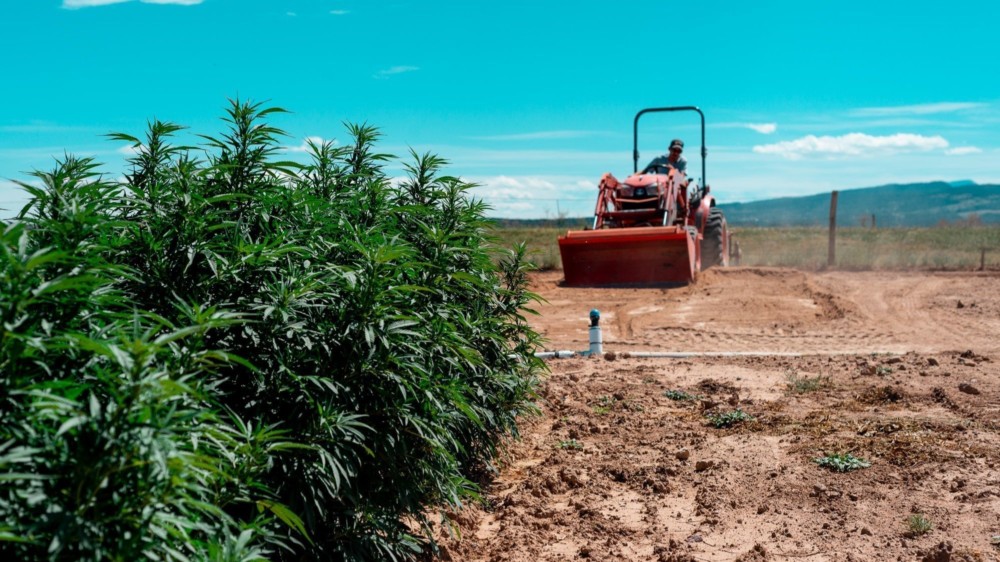By Marcia Heroux Pounds
South Florida Sun Sentinel
WWR Article Summary (tl;dr) Some Florida hemp entreprneurs fear that over-regulation could cause some major headaches. A proposed rule for stringent testing would result in less “CBD content” in hemp crops which could make them less attractive to buyers.
South Florida Sun Sentinel
Florida’s grand plan for a multibillion-dollar hemp industry that would make the state an emerging leader in the nation’s latest green rush could be at risk, some industry advocates say.
A federal proposed rule for stringent testing would result in less “CBD content” in hemp crops, making them less attractive to buyers. That’s according to the Hemp Industries Association of Florida, which has complained to the U.S. Department of Agriculture, which is developing regulations to oversee hemp production.
As the rules stand, they would have a “serious chilling effect on the amount of acres planted” and would “increase prices for the consumer significantly,” according to the association’s letter to the USDA.
“The plants will be in field less time, meaning they’ll have less CBD content, and farmers will not have a good marketable product,” said Ray Mazzie, the Tallahassee-based trade association’s executive director.
The most lucrative product to make with hemp is CBD oil, which some people use for anxiety and pain, but which doesn’t give users the “high” that marijuana does.
If the USDA rules become final, most hemp farming in Florida would become “cost-prohibitive,” Mazzie said. The result would be Florida consumers having to continue to buy out-of-state CBD oil, instead of potentially lower-priced alternatives from Florida growers. The state’s rules for CBD product quality and safety went into effect Jan. 1.
But the Florida Department of Agriculture, headed by Nikki Fried, said the department “remains optimistic that our hemp rules, crafted with public input and to closely align with federal laws, will allow farmers and entrepreneurs to succeed in this emerging industry,” according to Max Flugrath, the department press secretary.
Fried, a Democrat, has been championing hemp as making Florida “a national leader in this emerging new economy.”
Hemp became legal in Florida on July 1, 2019, and the state is now seeking federal compliance to launch hemp farming, to produce “Fresh from Florida” CBD oil and other hemp products. Hemp could be a new, multibillion-dollar industry for the state.
States must submit their hemp farming rules to the USDA to be compliant with federal regulations, being developed after the 2018 Farm Bill made U.S. hemp farming legal.
The USDA’s deadline for comments on its interim rules was Thursday. The final rules are expected in 2021.
Flugrath said, “Commissioner Fried is obligated to follow the law, including the USDA’s rules, and the state hemp rules must adhere to those guidelines.”
Jeff Greene, co-founder of the Florida Hemp Council, said the issues may “slow down” Florida’s hemp industry, but he believes the state will come up with solutions.
For now, the testing problem “resets the playing field. Most of the hemp that is grown nationally has too high of hemp to meet federal law,” he said.
The federal rules call for testing of the “flower” of the hemp plant 15 days before harvest, and if it is not in compliance, would have to dispose of the crop.
That will put farmers at risk of losing their investment in the crop, critics say.
Greene said with the current USDA rules, farmers would need to produce “twice as much material” to arrive at hemp that is marketable for CBD oil and related products.
The federal government considers cannabis with scant amounts of THC or tetrahydrocannabinol — 0.3 percent or less — to be hemp. But any level above that is marijuana and illegal under federal law.
But higher THC levels can be taken out of the crop by processors before products are made, Greene said.
Mazzie said some Florida farmers are already scaling back hemp-growing plans because the proposed rules would make hemp production cost-prohibitive.
Other states including South Carolina and Indiana, as well as national farmers’ groups, are asking the USDA to make changes to the interim rules, with trade publication Progressive Farmer calling the rules “unworkable” for farmers and a marketable industry.
Mazzie said Florida wants to avoid issues such as those in Kentucky, the first state to enter the hemp industry after the 2018 Farm Bill, where hemp farmers blame over-regulation for cash-flow problems.
Andrew Strickland, a cattle rancher near Starke who had hoped to farm hemp, said his plans are now on hold until Florida and the USDA work out the obstacles. Growing hemp for CBD is more lucrative, but he may end up “cutting out the aggravation” and producing industrial hemp for textiles or other non-CBD products.
He said if farmers are able to process the whole hemp plant — no matter what the THC level is — there are more product possibilities, such as cosmetics or lotions. “If you buy a whole chicken from a store, there’s so much more you can do with it than a bunch of chicken legs,” he said.
___
Distributed by Tribune Content Agency, LLC.














































































































































































































































































































































































